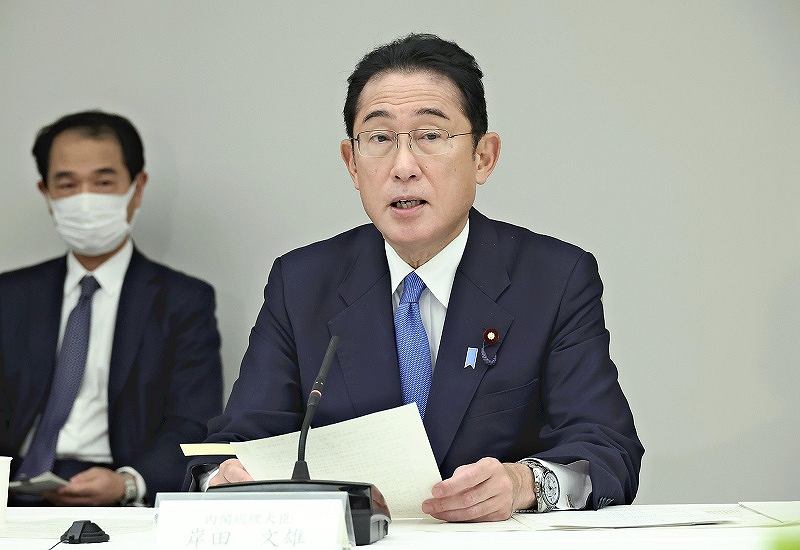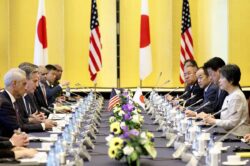Defense experts agree on need to beef up Japan’s deterrence

Prime Minister Fumio Kishida speaks at the first meeting of experts to comprehensively contemplate Japan’s national defense capabilities on Friday.
15:40 JST, October 1, 2022
The first meeting of an expert panel to comprehensively discuss Japan’s national defense capabilities, including how to equip the Self-Defense Forces, the size of the budget, financial resources and other issues, was held by the government at the Prime Minister’s Office on Friday.
The meeting’s participants, tasked with discussing a drastic beefing up of the nation’s defense capabilities, agreed on the need to strengthen deterrence. They called for a cross-ministerial approach to security.
The 10 experts included Kenichiro Sasae, former ambassador to the United States, who assumed the chairmanship; Hiroshi Nakanishi, a professor at Kyoto University specializing in international politics; and Toshikazu Yamaguchi, president of the Yomiuri Shimbun Holdings. From the government, Prime Minister Fumio Kishida, Foreign Minister Yoshimasa Hayashi, Finance Minister Shunichi Suzuki, Defense Minister Yasukazu Hamada, and others participated.
The experts will compile their recommendations by early December in preparation for the revision of three defense-related documents, including the National Security Strategy, and the compilation of the budget by the end of the year.
At the meeting, Kishida said: “Even in the current severe security environment, we must protect the lives and livelihoods of the people. We will not rule out any options, and we will fundamentally strengthen our defense capabilities.” This remark was made in apparent reference to the idea of possessing counterattack capabilities to use in self-defense against an enemy’s missile-launching bases and other targets.
The size of the budget that would correspond to strengthening defense capabilities will continue to be a point of discussion for the panel. The member nations of the North Atlantic Treaty Organization (NATO) have set a goal of increasing their defense-related expenditures to at least 2% of their gross domestic product. Japan has kept its defense spending to within 1% of its GDP.
However, Japan and NATO calculate defense spending differently.
The government aims to achieve its own 2% target by introducing the concept of defense-related expenditures with reference to the “NATO standard” of accounting, which includes coast guard spending in the national-defense budget. Currently, the Japan Coast Guard budget is not counted as part of Japan’s defense spending.
Kishida emphasized, “We need to break down bureaucratic sectionalism and consider strengthening the comprehensive defense system, by including the use of research and development in the public and private sectors and public infrastructure in the event of a contingency.”
In addition to JCG spending, the government envisions including the science and technology budgets of other ministries and agencies, as well as budgets for airports, ports and other public works.
Many of the experts supported the introduction of a new standard, saying that a standard for calculating security costs should be worked out.
Securing financial resources is essential to increasing defense expenditures, and will be a focus of future meetings. Issuance of government bonds and tax increases are options, and several experts expressed the opinion that the public must be asked to bear a burden.
Kishida said, “Even in the event of an emergency, we must prevent the credibility of our nation and the lives of our citizens from being damaged,” thereby also calling for a discussion on what the nation’s economy and public finances should be like.




